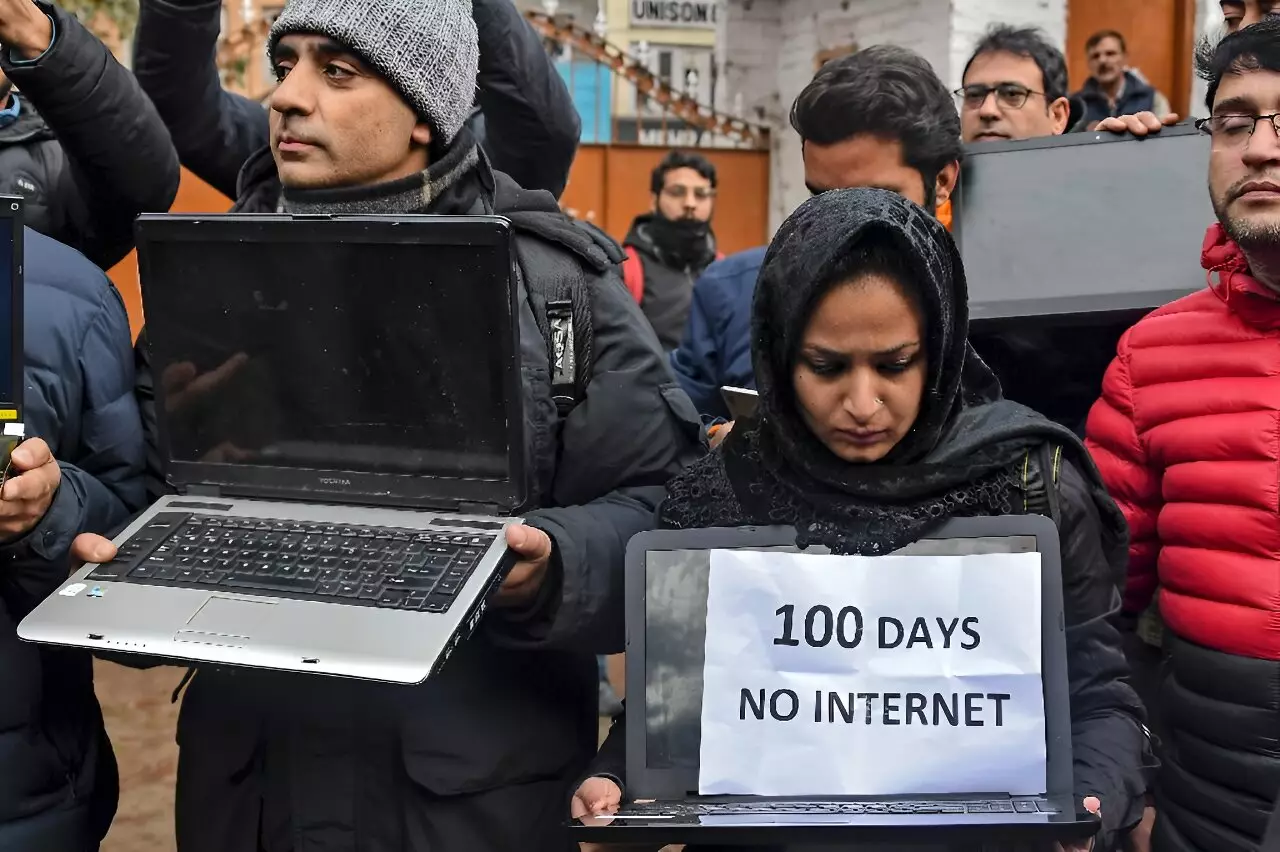India is known for its advancements in technology, including the world’s largest biometric ID database, a pioneering digital payment system, and a successful space and satellite program. These achievements demonstrate the country’s understanding of the power of connected technology. However, when faced with political unrest or sectarian violence, Indian authorities resort to an extreme measure of severing internet service. The intention behind these internet shutdowns is to curb disinformation, but the consequences are far-reaching, affecting millions of people who rely on the internet for communication, information, and business.
Internet shutdowns have become a common occurrence in India, with authorities utilizing them as their “first tool in their toolkit,” according to online civil liberties activist Mishi Choudhary. The duration of these blackouts varies, ranging from a few hours to several days or even months. For instance, in Manipur state, more than three million people have been cut off from mobile internet since May due to ongoing clashes. The internet ban has had devastating consequences, as it took two months for Phijam Ibungobi to learn about the tragic death of his son, which was shared through social media when the internet was briefly restored in September.
India, being the world’s largest democracy, is also at the forefront of internet shutdowns globally. Access Now, a New York-based online freedom monitoring organization, reported that out of the 187 internet shutdowns recorded worldwide last year, 84 occurred in India – the highest number for the fifth consecutive year. The main justifications provided by the Indian government for these shutdowns include protests and the prevention of cheating during exams. However, the real motive behind these actions is likely to control the narrative and suppress dissenting voices, as no counter voices can emerge in the absence of internet access.
Human Rights Watch has highlighted that internet shutdowns disproportionately harm the most vulnerable, including the poorest segments of society. These individuals heavily rely on the government’s online social support systems, which are inaccessible during blackouts. In 2021 alone, approximately 121 million people were affected by these shutdowns, as reported by HRW. It is ironic that in the era of “Digital India,” where the government aims to make the internet fundamental to all aspects of life, authorities resort to internet shutdowns as a default policing measure. Jayshree Bajoria from HRW argues that internet access is vital for economic security, and the continuous disruption undermines the economy, as seen in Indian-administered Kashmir, where a 500-day blackout in 2019 and 2020 resulted in a staggering economic loss of over $2.4 billion for the region’s traders.
The impact of internet shutdowns extends beyond individuals relying on social support systems. The loss of internet access severely stifles trade, affecting everyone from market vegetable sellers to larger businesses dependent on online payment apps. Mark Fanai, a 42-year-old working remotely for a law firm in Manipur, had to endure commuting for up to 12 hours a week to access the internet before ultimately moving to a neighboring state due to the prolonged internet suspension. Furthermore, journalists face significant challenges during blackouts as their ability to report accurate news and facts is hampered. When protests in Maharashtra state escalated, and the authorities turned off the internet for three days, journalists like Vinod Jire had no choice but to leave the district to file their stories, disrupting their work and hindering the public’s access to timely and reliable information.
Indian authorities argue that internet cuts are necessary to contain disinformation and prevent the spread of rumors on social media and messaging platforms. However, critics, like advocate Tanmay Singh from the Internet Freedom Foundation, highlight that disinformation can still spread offline, and the primary defense against it is fact verification and fact-checking, which primarily happen online. Additionally, internet shutdowns fail to address the root causes of conflict and only provide a temporary respite from hate or violence. Ginza Vualzong, an indigenous tribal leader in Manipur, emphasizes that internet bans do not solve underlying issues within communities affected by violence.
Internet shutdowns in India have severe ramifications on communication, information dissemination, and business activities. While the government may justify these actions as necessary measures to curb disinformation, the detrimental impact on the lives and livelihoods of millions cannot be overlooked. As a country that embraces technology and strives for digital progress, India must find alternative ways to maintain peace and order without resorting to such extreme tactics that infringe on the fundamental rights of its citizens. Only through a balanced and thoughtful approach can India truly harness the power of technology for the benefit of all.


Leave a Reply